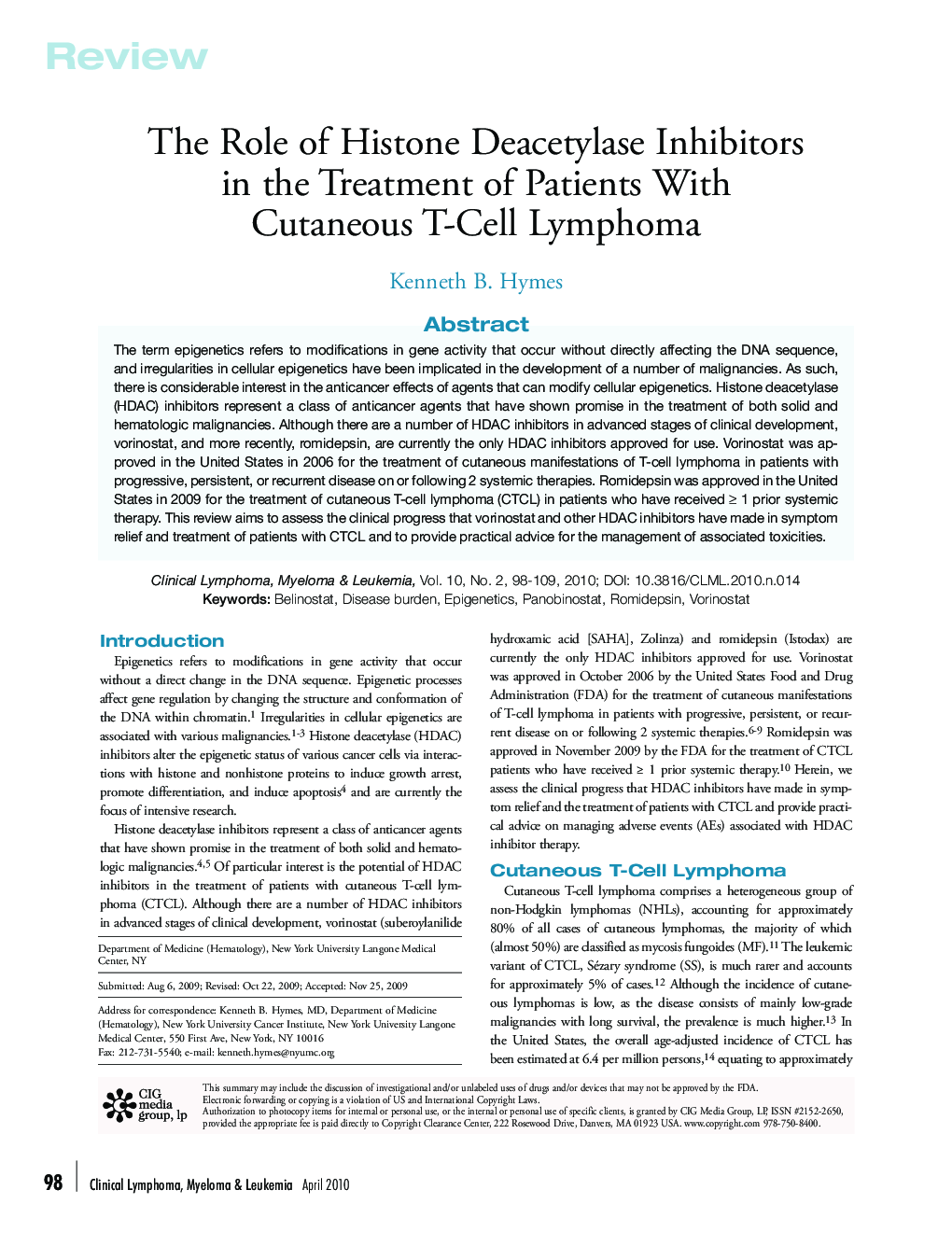| Article ID | Journal | Published Year | Pages | File Type |
|---|---|---|---|---|
| 2755416 | Clinical Lymphoma Myeloma and Leukemia | 2010 | 12 Pages |
The term epigenetics refers to modifications in gene activity that occur without directly affecting the DNA sequence, and irregularities in cellular epigenetics have been implicated in the development of a number of malignancies. As such, there is considerable interest in the anticancer effects of agents that can modify cellular epigenetics. Histone deacetylase (HDAC) inhibitors represent a class of anticancer agents that have shown promise in the treatment of both solid and hematologic malignancies. Although there are a number of HDAC inhibitors in advanced stages of clinical development, vorinostat, and more recently, romidepsin, are currently the only HDAC inhibitors approved for use. Vorinostat was approved in the United States in 2006 for the treatment of cutaneous manifestations of T-cell lymphoma in patients with progressive, persistent, or recurrent disease on or following 2 systemic therapies. Romidepsin was approved in the United States in 2009 for the treatment of cutaneous T-cell lymphoma (CTCL) in patients who have received ≥ 1 prior systemic therapy. This review aims to assess the clinical progress that vorinostat and other HDAC inhibitors have made in symptom relief and treatment of patients with CTCL and to provide practical advice for the management of associated toxicities.
